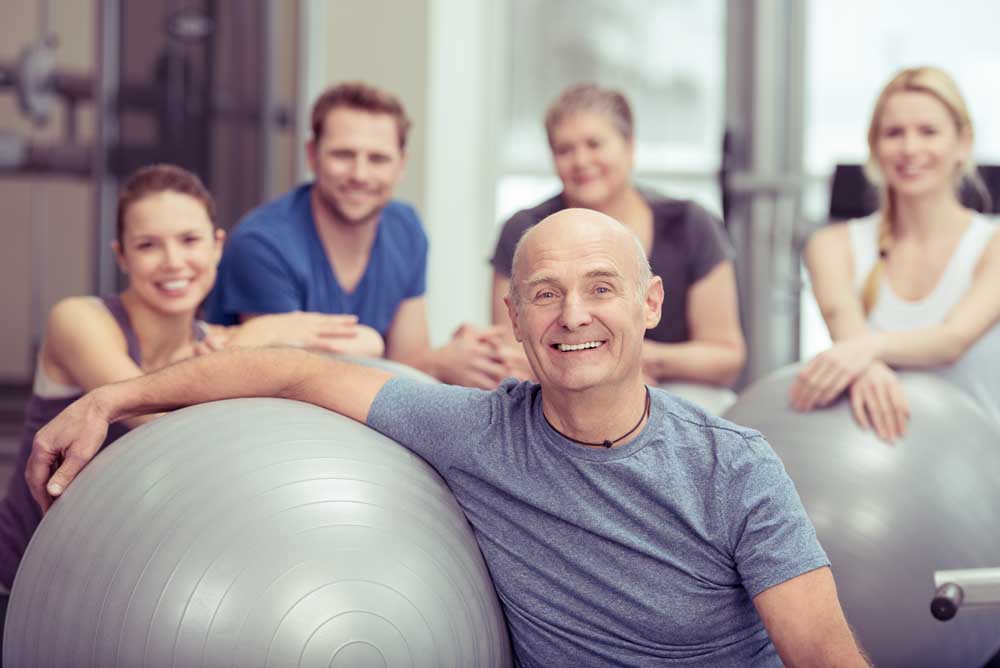The power of positive people
Published 12:00 am Friday, July 20, 2018

- Research has shown that spending time around positive people can provide a health benefit, similar to diet and exercise.(123rf)
Are you spending time with the right people for your health and happiness?
While many of us focus on diet and exercise to achieve better health, science suggests our well-being also is influenced by the company we keep.
Researchers have found certain behaviors appear to be contagious and our social networks — in person and online — can influence obesity, anxiety and overall happiness. A recent report found a person’s exercise routine was strongly influenced by their social network.
I was reminded of the power of the crowd during a wellness cruise sponsored by Times Journeys.
The event attracted a group of like-minded travelers who, despite experiencing various levels of adversity, were optimistic.
The group ranged in age from 17 to 90. One man, in his 80s, adopted a vegan lifestyle and a strict exercise routine to control his diabetes.
Another new friend, a woman in her 50s who survived lung cancer, cheered me on and kept me going during a difficult workout.
After the trip, we promised to keep in touch. Buoyed by the experience, I returned home with a renewed commitment to exercise, focus on healthful living and spend more time with happy people.
Dan Buettner, a National Geographic fellow and author, studied the health habits of people who live in so-called blue zones — regions of the world where people live far longer than average.
He noted positive friendships are a common theme in blue zones.
“Friends can exert a measurable and ongoing influence on your health behaviors in a way that a diet never can,” Buettner said.
In Okinawa, Japan, where the average life expectancy for women is around 90, the oldest in the world, people form a kind of social network called a moai — a group of five friends who offer social, logistic, emotional and even financial support for a lifetime.
“It’s a very powerful idea,” Buettner said. “Traditionally, their parents put them into moais when they are born, and they take a lifelong journey together.”
Moai appear to influence lifelong health behaviors.
Buettner is working with federal and state health officials, including former U.S. Surgeon General Vivek Murthy, to create moais in two dozen cities around the country.
He spent time in Fort Worth, Texas, where residents have formed walking moais, meeting to walk and socialize.
“We’re finding that in some of these cities, you can just put people together who want to change health behaviors and organize them around walking or a plant-based potluck,” he said. “We nudge them into hanging out together for 10 weeks. We have created moais that are now several years old, and they are still exerting a healthy influence on members’ lives.”
The key to building a successful moai is to find people with similar interests, passions and values. The Blue Zone team tries to group people based on geography and work and family schedules to start. They ask a series of questions to find common interests.
One of my fellow travelers, Carol Auerbach of New York City, noted surrounding herself with positive people helped her cope with the loss of two husbands.
Auerbach was widowed at 30, when her children were young. With support of her family and friends, she supported her family, and eventually remarried. In 1992, her second husband died unexpectedly. To cope, she focused on volunteer work.
Auerbach found love again and married her third husband15 years ago.
The Blue Zone team has created a quiz to help people assess the positive impact of their own social network.
The quiz asks questions about your friends and the state of their health, how much they drink, eat and exercise, as well as their outlook.
The goal of the quiz is not to dump your less healthy friends, but to identify the people in your life who score the highest and to spend more time with them.
“I argue that the most powerful thing you can do to add healthy years is to curate your immediate social network,” said Buettner, who advises people to focus on three to five real-world friends rather than distant Facebook friends. “In general you want friends with whom you can have a meaningful conversation,” he said. “You can call them on a bad day and they will care. Your group of friends are better than any drug or anti-aging supplement, and will do more for you than just about anything.”








